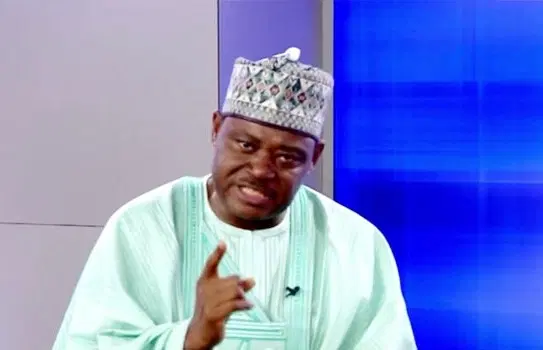Senator Jimoh Ibrahim, representing Ondo South Senatorial District, has urged former President Olusegun Obasanjo to avoid comments that undermine Nigeria’s progress. He emphasized that Nigeria is on the path to recovery under President Bola Tinubu and the APC-led Federal Government.
Speaking on Channels Television’s Politics Today, Ibrahim addressed Obasanjo’s recent speech at the Chinua Achebe Leadership Forum at Yale University, where the former president criticized Nigeria’s leadership, describing the nation as being in a state of “state capture.” Obasanjo also called for credible leadership within the Independent National Electoral Commission (INEC) to uphold electoral integrity.
While acknowledging Obasanjo’s influence, Ibrahim said, “I respect former President Olusegun Obasanjo, but using war-like rhetoric during peacetime is counterproductive. Developing countries are inherently fragile, and labeling Nigeria as a failed state undermines ongoing efforts.”
Ibrahim defended Tinubu’s administration, citing significant reforms. “Nigeria is functioning under Tinubu’s leadership. His administration has introduced reforms that are earning recognition globally. For example, the IMF appreciates Tinubu’s independent economic policies, which are not dictated by global powers like the U.S. or China.”
Highlighting the country’s progress, Ibrahim added, “The security situation has improved, and Tinubu’s administration is tackling foundational issues like subsidy removal and economic independence. It’s unfair to assess Nigeria’s progress solely through the naira-to-dollar exchange rate.”
He also criticized Obasanjo’s silence on critical issues like Boko Haram and current security improvements. “Why isn’t Obasanjo acknowledging the progress on security? Why focus on criticisms while ignoring achievements?”
In conclusion, Ibrahim urged Obasanjo to adopt a more constructive approach, saying, “As an elder statesman, his comments should inspire unity and progress, not division. War-like language in peacetime does a disservice to Nigeria.”
This exchange highlights the contrasting perspectives on Nigeria’s current trajectory, with Ibrahim advocating for a focus on progress and constructive dialogue.



